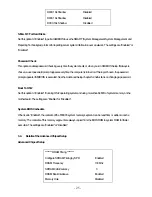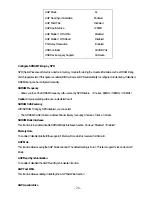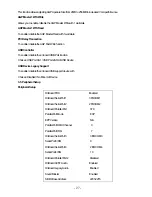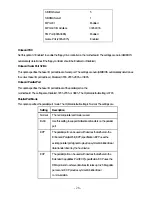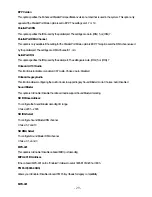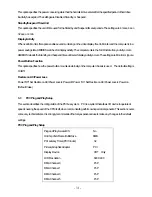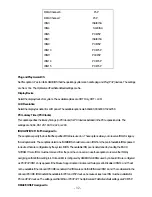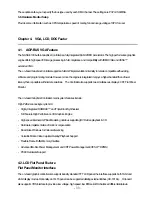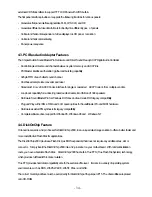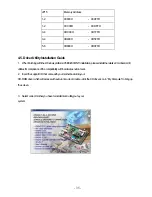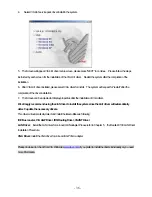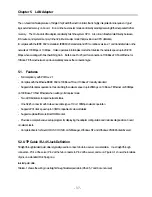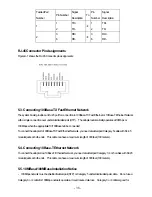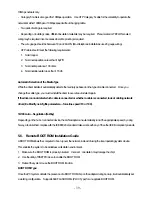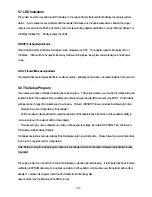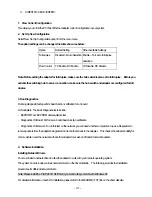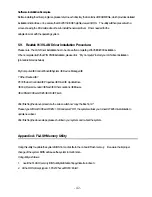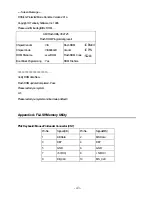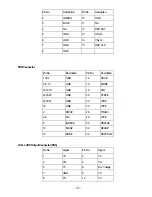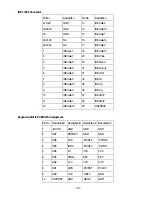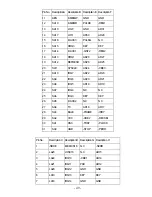
- 39 -
10Mbps network only.
- Category 5 cable is also good for 10Mbps operation. Use UTP Category 5 cable for the versatility to operate the
network at either 100Mbps or 10Mbps speed without changing cable.
- Two pairs of wiring are required.
- Depending on building codes, different insulation materials may be required. Plenum-rated or TEFLON-coated
wiring maybe required in some areas where fire proofing is required.
- The wire gauge should be between 18 and 26 AWG (Most telephone installations use 24-gauge wiring).
- UTP cable should meet the following requirements:
1. Solid copper
2. Nominal capacitance: less than 16pF/ft
3. Nominal impedance: 100 ohms
4. Nominal attenuation: less than 11.5db
Automatic Selection of the Media Type
While the driver installs, it automatically detects the media type based on the type of cable connected. Once you
change the cable type, you must reinstall the driver to execute auto-detect again.
If the driver cannot detect which cable is connected or whether a cable is connected, look at cabling network
driver (Ex. Modify net.cfg file parameters— force line speed=10 or 100).
10/100 Auto – Negotiation (N-Way)
Depending on the hub or connected device, the LAN adapter can automatically run at the appropriate speed, by using
N-way, a feature that complies with the IEEE802.3 standard. It also works with any of the other IEEE-compliant products.
5-6. Remote BOOT ROM Installation Guide
A BOOT ROM allows the computer to boot up over the network, instead of using the local operating system device.
This enables the system to be a diskless workstation environment.
1. Make sure the BOOT ROM is properly oriented. Incorrect orientation may damage the chip!
2. Use the utility of RSET8139.exe to enable the BOOT ROM.
3. Reboot the system to use the BOOT ROM function.
BOOT ROM Type:
Once the PCI system detects the presence of a BOOT ROM chip on the adapter during boot-up, it will automatically set
a working configuration. Supports 64K FLASH ROMs (PLCC Type) for an upgrade BOOT ROM.

